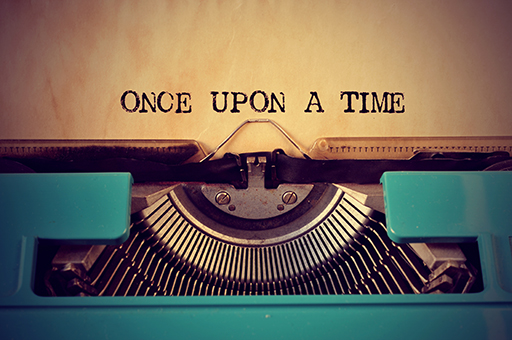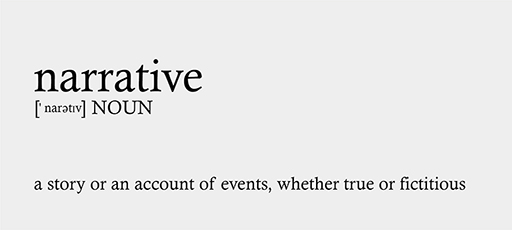1 Narrative
Narrative can be defined simply as a story or an account of events, whether true or fictitious (Figure 1). However, despite this simple definition, the actual creation of narrative involves the piecing together of many elements. There is a scene to be set, a plot and characters, it has a beginning, a middle and an end, but can at times also branch off into descriptive embellishments. Narratives can be uncomplicated accounts of events or they can be captivating stories filled with twists and turns that tell of people who have performed heroic deeds, committed crimes, or who have suffered and overcome some misfortune.
A good story is one with which the reader or listener finds a connection; the characters come to life and, for a time, are almost as important to the reader as people they know personally. Through the reader’s response and personal resonance, a narrative may evoke memories and surface a host of emotions and feelings. It is these narratives that can fill you with joy, reduce you to tears, or evoke suspense, intrigue and anticipation. A narrative can cause fear, or it can calm, comfort and reassure. Through imagination, a well-told story can transport you into another world, offering you new experiences which are only present in your mind.

SAQ _unit4.1.1 Personal reflection 1
Spend a few minutes thinking about one of your favourite books or films.
- Why did the narrative resonate with you?
- How well did you get to know the characters?
- What sorts of emotion did it evoke?
- How did you feel at the end of the book or film?
Comment
As discussed in Session 2, Reader Response theory explains why everyone interprets a narrative differently and how readers are most deeply affected by texts in which they find personal connections. The connections the reader makes with characters and circumstances in a narrative can be deeply affective.
However, narrative is not just a medium for entertainment – it is also a tool for thinking and understanding the world. You will look at this next.

